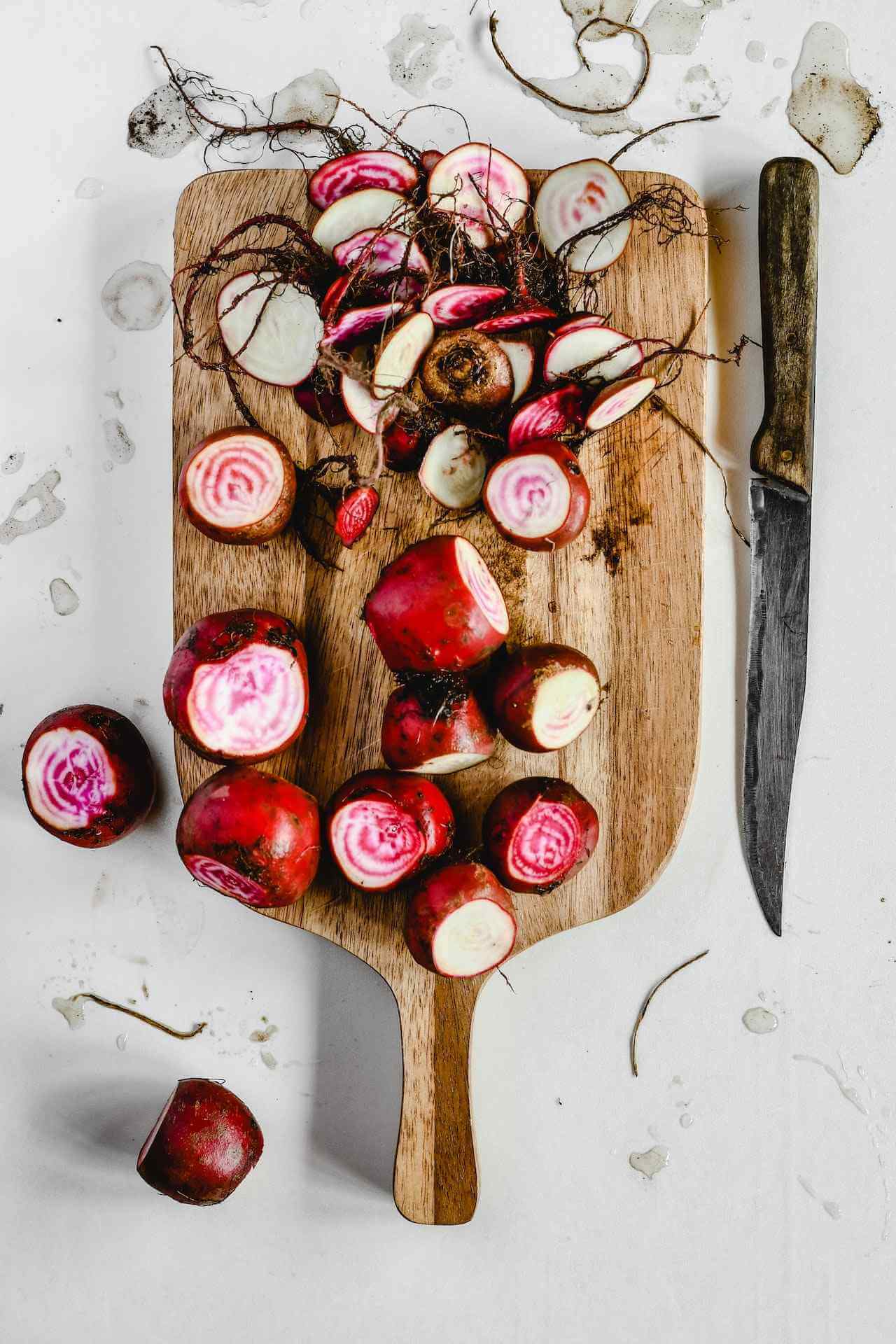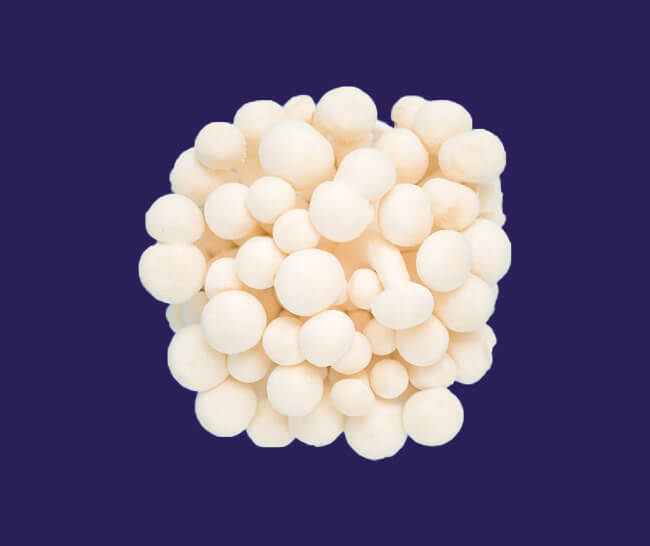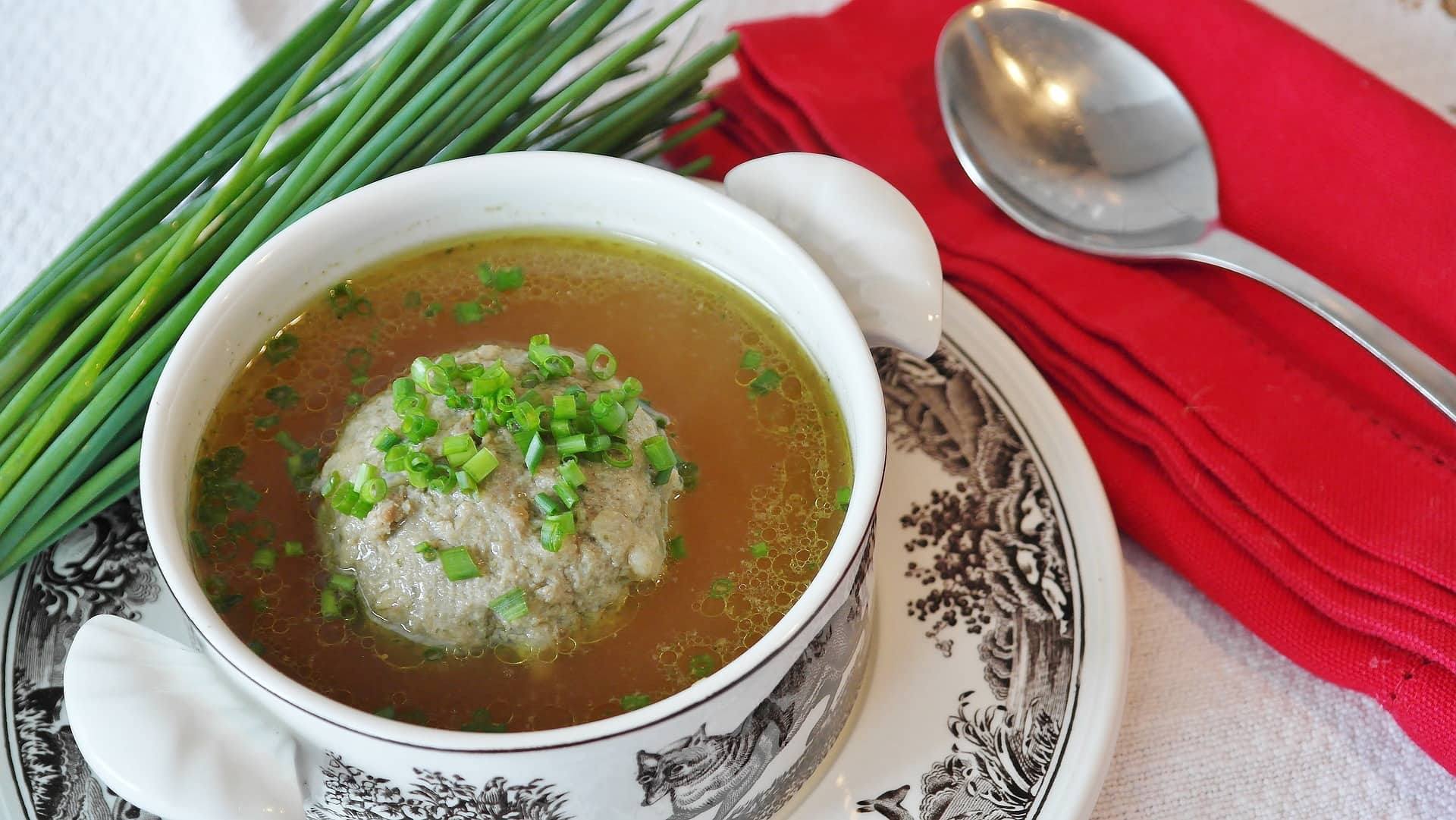It’s fun to add new beverages to your daily routine. Drinking water all the time can get boring, and it doesn’t have the same nutritional value as juice. Diversify your healthier diet by learning the many health benefits of beetroot juice and how it could become something you look forward to daily.
Beetroot Juice Nutritional Value
People might think beetroot is a fancy vegetable you can only get from specialized grocery stores, but that isn’t true. Beetroots are regular beets with their taproot intact. The root often comes off before someone uses beets in a recipe, but it’s perfectly fine to add to your glass of juice.
Beetroots have a complete nutritional profile, which includes the following nutrients when portioned into one-cup serving sizes:1
- Calories: 58.5 kilocalories (kcal)
- Carbohydrates: 13 grams
- Protein: 2.19 grams
- Sugar: 9.19 grams
- Calcium: 21.8 grams
- Fiber: 3.81 grams
- Magnesium: 31.3 milligrams (mg)
- Phosphorus: 54.4 mg
- Potassium: 442 mg
- Sodium: 106 mg
- Vitamin A: 2.72 micrograms (µg)
- Vitamin C: 6.7 mg
- Vitamin K: 0.272 µg
{{mid-cta}}
Benefits of Beetroot Juice
You can enjoy numerous health benefits when you add beetroot juice to your diet. Consider your health history to determine whether these positive effects could improve your well-being.
May Lower Blood Pressure
Beet juice suits people trying to lower their blood pressure alongside their doctor’s recommendations. Research shows the nitrates in beetroot juice lower systolic blood pressure by helping blood vessels relax.2 Relaxed vessels improve blood flower, creating lower blood pressure that’s easier to maintain with regular beet intake.
High blood pressure is the first sign of heart conditions progressing before a diagnosis. It can lead to numerous conditions, including atherosclerosis and heart attacks.3 Making a daily glass of juice is an easy way to get ahead of potentially worsened health.
Reduces Inflammation
Buying beetroots means you’re investing in the betalains contained within each one. Betalains are potent anti-inflammatory compounds and antioxidants that fight multiple chronic diseases such as cancer, cardiovascular conditions, and diabetes.4
You could potentially consume nutrients like vitamin C and potassium through supplements, but beets wrap them into one tasty package alongside other helpful antioxidants. Whether trying to lose weight or prevent diseases, antioxidants will reduce the cellular inflammation preventing you from reaching your health goals.
If you worry about growing bored with your diet, you can always add homemade apple juice to your routine to achieve similar results. Apples also have antioxidants, so they’re an excellent addition to a diet with beetroot juice.
Improves Stamina for Physical Exercise
Beets could be the dietary tool you need to experience greater success at the gym. They feature significant amounts of nitric oxide, which dilates blood vessels and regulates neurotransmission.5
Increasing the ease of blood flow throughout your body means your heart doesn’t need as much energy to send oxygen to your muscles. Your brain also won’t work as hard to maintain your stamina with improved neurotransmission. You’ll have more energy for your workouts or any other physical activity you enjoy.
Protects the Liver
Every bite or sip of beetroots results in more dietary vitamin C. The essential nutrient regulates and circulates lipid homeostasis, which ultimately protects your liver against diseases involving fatty tissue.6 It’s one of the many health benefits of beetroot juice that people don’t expect when experimenting with easy recipes.
Helps Reduce Cholesterol
When researchers asked study participants to drink beetroot juice daily for six weeks, they found reduced cholesterol levels in the experimental group.7 Beet juice improves your heart health if you already deal with high cholesterol. Talk with your doctor if you think it could be a helpful resource alongside any prescription medication you’re already taking.
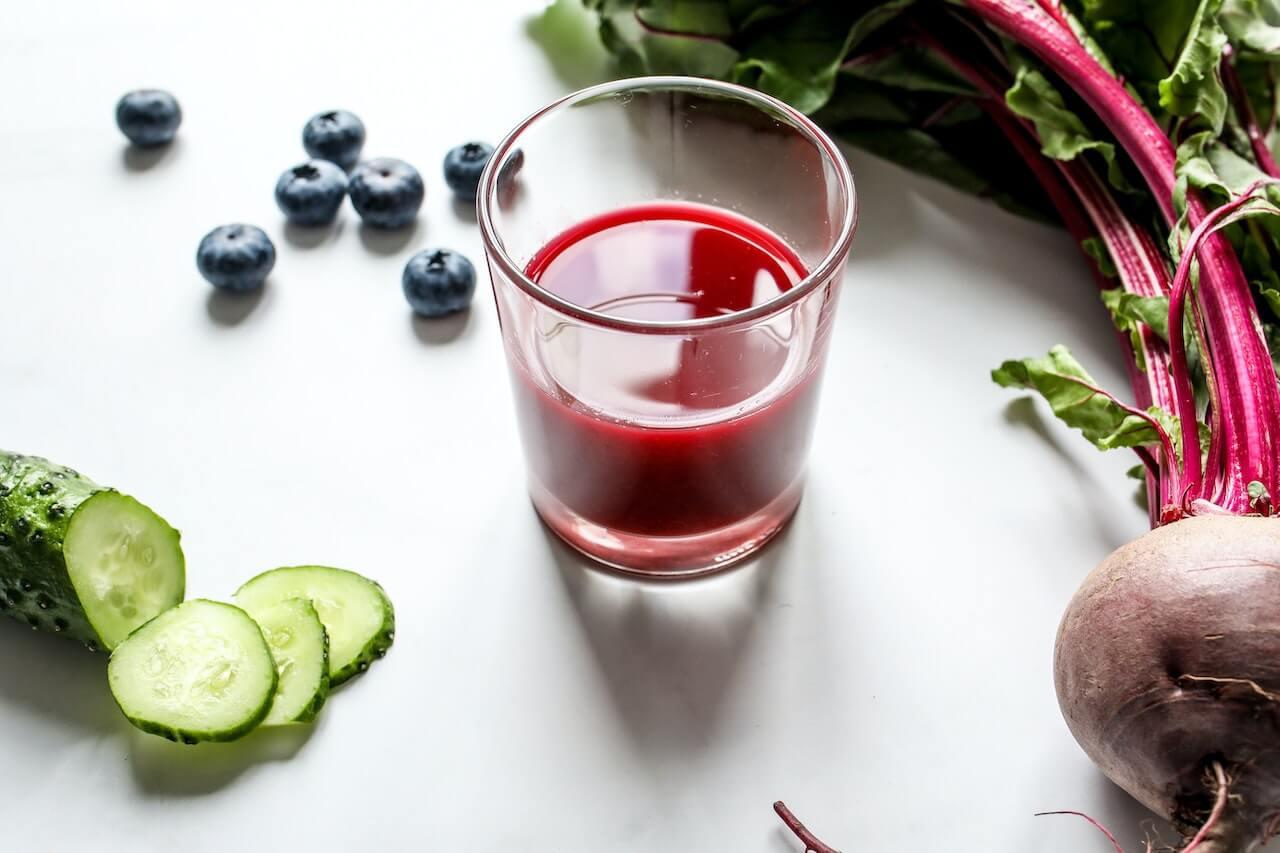
How to Make Beetroot Juice at Home
With these quick tips, anyone can learn how to make beetroot juice at home. Study the process and create a healthy beverage when you’re ready to start a more nutritious diet.
How to Clean the Beetroots
Sometimes, people think an upset stomach is a less common beetroot juice side effect, but it may occur due to bacteria remaining on the vegetable. Follow these steps to clean yours before making your beverage:
- Cut the leafy stems away, leaving two inches of stem attached to the beet.
- Rinse the beet thoroughly under running water at whatever temperature you prefer.
- Use a soft-bristled brush to scrub the dirt out of miniature crevices or malformities.
- Give the beet a final rinse to ensure it’s clean.
- Pat dry to identify any lingering dirt. Repeat the rinsing and scrubbing process if needed.
How to Prepare the Juice
You’ll enjoy all the health benefits of beetroot juice by cleaning at least one beet and following these instructions to prepare your beverage. You can use a juicer or blender, depending on which kitchen tool you have at home.
With a Juicer
- Slice your beet into chunks small enough to fit into the feeder tube of your juicer. The pieces should contain the root and the two inches of stem still attached to the beet.
- Fill your feeder tube with beetroot chunks and enclose them with the appliance’s presser tool.
- Place a large glass under the juicer’s spout.
- Turn the machine on and press gently on the feeder tube. The beet chunks should process slowly through the juicer and into your glass.
- Continue until all of your beets are juiced.
- Wash the juicer parts before or after drinking your beverage.
With a Blender
- Slice your beet into one-inch chunks and place in your blender.
- Consider adding the washed beet leaves. They contain calcium that could benefit your diet and transform easily into a liquid with a blender.
- Add at least 1/3 cup of water. You can swap the water for your preferred juice to enhance flavor.
- Ensure the blender lid is securely on the appliance before activating the blend or smoothie setting.
- Allow the blender to work until the juice reaches your desired consistency.
- Wash the blender parts before or after drinking your beverage.
Leveling It up With Other Ingredients
Once you know how to make beetroot juice, you can play around with your ingredients list. Substitute the water in your blended beverage with juice to add another flavor like cranberry. You can also add other healthy foods to your blender or juicer, like apples, peaches, mangoes, or carrots.
Consider adding ingredients to make your beet juice a superfood. You could put washed celery sticks through your juicer to add more fiber to your diet. You’ll improve your bowel movement regularly without changing the juice’s flavor.
Beetroot Juice Recipe
If you’re ready to drink beet juice, follow this simple recipe to explore the potential new flavor. It’s easy to make when you’re on the go or looking to relax at home.
Ingredients
- 1 small beet
- 1 cup strawberries
- 1/2 cup of water, milk, or your preferred juice
- Sweetener of choice, to taste
Instructions
- Clean and prepare your beet according to the directions above to clean it.
- Cut the leaves off your strawberries and rinse them clean. Set aside.
- Place the beet chunks in your juicer or blender.
- Add 1/2 cup of milk, water, or your preferred juice if you're using a blender.
- Activate your kitchen appliance to either juice the vegetable or blend it to a smooth consistency.
- Add the strawberries and blend or juice until they combine with your beetroot juice.
- Add your sweetener of choice, like liquid stevia, agave, or erythritol. Start with a small amount, as the strawberries and beet are naturally sweet.
Drinking Beetroot Juice: Recommendations and Tips
Get the most from your beetroot beverages by reading some of the most frequently asked questions regarding making juice, enjoying it, and other health concerns.
How Much Beetroot Juice Can You Drink?
If you’re wondering how much beet juice to drink daily, the answer will depend on your comprehensive diet.
The U.S. Centers for Disease Control and Prevention (CDC) recommends getting two to three cups of vegetables daily.8 If you’re already eating salads packed with veggies and fruit snacks, sticking to one cup of beet juice could be better for your body.
Some beetroot juice side effects may include gas and more regular bowel movements due to fiber in the beets. Start with smaller servings if you already get plenty of fiber from healthy meals.
When Is It Best to Drink Beetroot Juice?
You might find the beetroot juice benefits most helpful when you’re tired. Nitric oxide deficiencies cause fatigue, which may occur at different times of the day for individuals.9 Reflect on when you feel most exhausted to time your juice intake with those hours of the day.
If you’re aiming for weight loss, switching your typical vegetable juice with beetroot juice could be more helpful in the mornings or afternoons. Beets contain fiber, which makes you feel full longer. Consider adding a beetroot beverage to your daily menu to avoid hunger.
How to Store Beetroot Juice Effectively
Meal preppers don’t have to switch their routine or add supplements to their diet to drink beetroot juice. It stays fresh in the fridge for two to three days when stored in an air-tight container. Make your juice ahead of time as you figure out how much beet juice to drink daily with your dietary needs and goals.
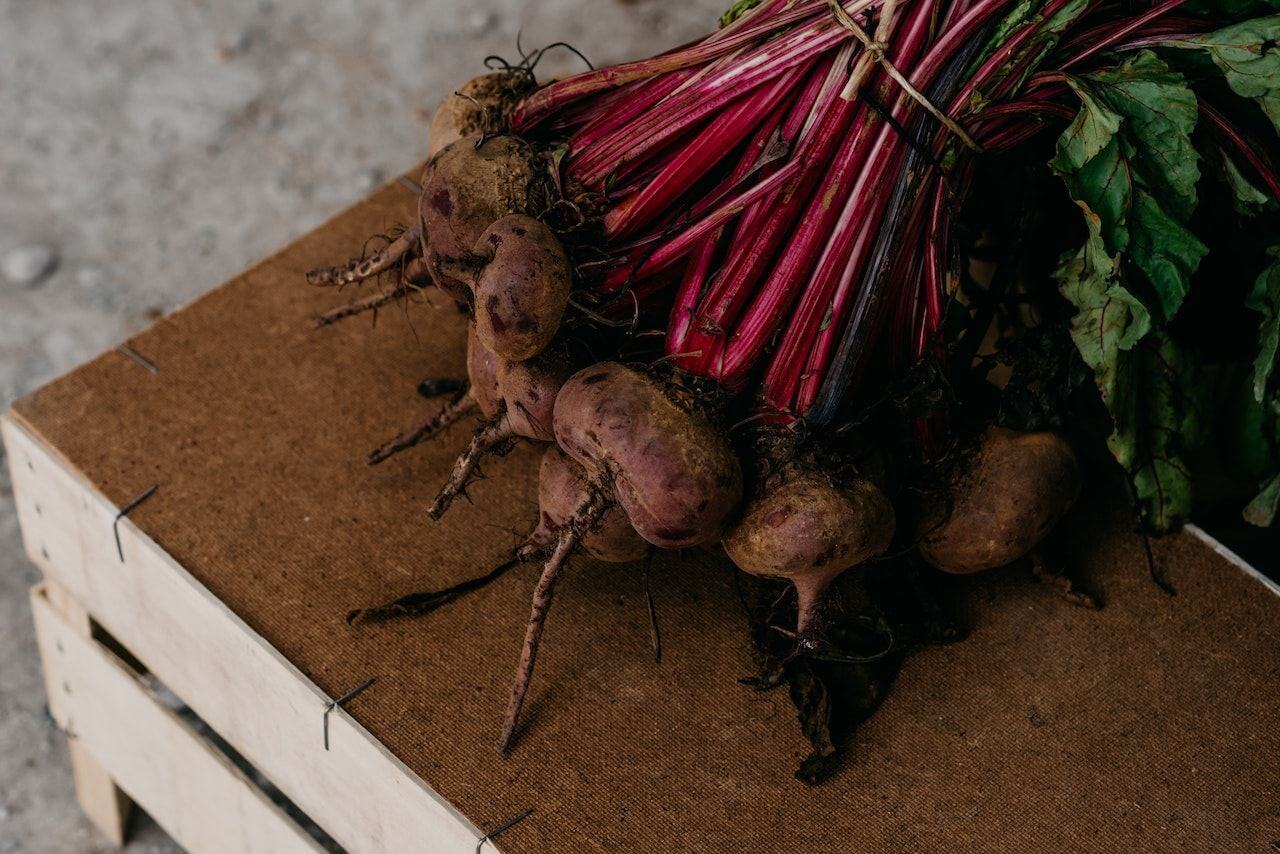
Are There Any Side Effects to Drinking Beetroot Juice?
Beets are naturally occurring vegetables, so consuming them in moderation shouldn’t result in intense side effects. If you’re more sensitive to their nutrients or accidentally drink beet juice in excess, you might experience side effects like:
- Pink or red urine due to beetroot dye
- Gas or cramping
- Bloating
- A sudden drop in blood pressure
- Increased occurrence of kidney stones for individuals sensitive to oxalates10
If you have any concerns about adding beetroots to your diet, speak to your healthcare provider.
Learn More About Creating Healthy Nutrition Habits With Signos’ Expert Advice.
Now that you know about the many benefits of beetroot juice, consider if they’ll help you reach your health goals. It’s a new way to enjoy vegetable juice without feeling stuck with either carrots or tomatoes.
Anyone interested in learning more about nutrition can create healthier eating habits with Signos’ expert advice. The team at Signos has extensive experience in helping people with weight loss goals while publishing free articles to empower readers who want to make positive lifestyle changes.
You can always take a quick quiz to determine if Signos could help you reach your goals. You’re only minutes away from accessing helpful resources that make nutritious, sustainable diets easy to manage.
- Item 1
- Item 2
- item 3
Topics discussed in this article:
References
- U.S. Department of Agriculture. (2019, April 1). FoodData Central Search Results. FoodData Central. https://fdc.nal.usda.gov/fdc-app.html#/food-details/169145/nutrients
- Benjamim, C. J. R., Porto, A. A., Valenti, V. E., Sobrinho, A. C. da S., Garner, D. M., Gualano, B., & Bueno Júnior, C. R. (2022, February 2). Nitrate Derived From Beetroot Juice Lowers Blood Pressure in Patients With Arterial Hypertension: A Systematic Review and Meta-Analysis. Frontiers. https://www.frontiersin.org/articles/10.3389/fnut.2022.823039/full
- Tribeca Medaesthetics. (2023, June 13). Heart Disease Prevention. Heart Health. https://tribecamed.com/services/heart-health/
- Chen, L., Zhu, Y., Hu, Z., Wu, S., & Jin, C. (2021, September 9). Beetroot as a Functional Food With Huge Health Benefits: Antioxidant, Antitumor, Physical Function, and Chronic Metabolomics Activity. Food Science & Nutrition. https://www.ncbi.nlm.nih.gov/pmc/articles/PMC8565237/
- Kiani, A. K., Bonetti, G., Medori, M. C., Caruso, P., Manganotti, P., Fioretti, F., Nodari, S., Connelly, S. T., & Bertelli, M. (2022, October 17). Dietary Supplements for Improving Nitric-Oxide Synthesis. Journal of Preventive Medicine and Hygiene. https://www.ncbi.nlm.nih.gov/pmc/articles/PMC9710401/
- Luo, X., Zhang, W., He, Z., Yang, H., Gao, J., Wu, P., & Ma, Z. F. (2021, December 29). Dietary Vitamin C Intake Is Associated With Improved Liver Function and Glucose Metabolism in Chinese Adults. Frontiers. https://www.frontiersin.org/articles/10.3389/fnut.2021.779912/full
- Lotfi, M., Azizi, M., Tahmasebi, W., & Bashiri, P. (2020, March). Efficacy of Beetroot Juice Consumption on the Lipid Profile of Female Soccer Players. EBSCO. https://shorturl.at/ctEL6
- Hee Lee, S., Moore, L., Park, S., Harris, D., & Blanck, H. (2022, January 6). Adults Meeting Fruit and Vegetable Intake Recommendations - United States, 2019. Morbidity and Mortality Weekly Report. https://www.cdc.gov/mmwr/volumes/71/wr/mm7101a1.htm
- Alghadir, A., Gabr, S., Almomani, M., Almonmani, F., & Tse, C. (2022, May 11). Adiponectin and Nitric Oxide Deficiency-Induced Cognitive Impairment in Fatigued Home-Resident in Mature and Older Adults: A Case-Control Study. Pain Research & Management. https://pubmed.ncbi.nlm.nih.gov/35600795/
- Mitchell, T., Kumar, P., Reddy, T., Wood, K. D., Knight, J., Assimos, D. G., & Holmes, R. P. (2019, March 1). Dietary Oxalate and Kidney Stone Formation. American Journal of Physiology. Renal Physiology. https://www.ncbi.nlm.nih.gov/pmc/articles/PMC6459305/

